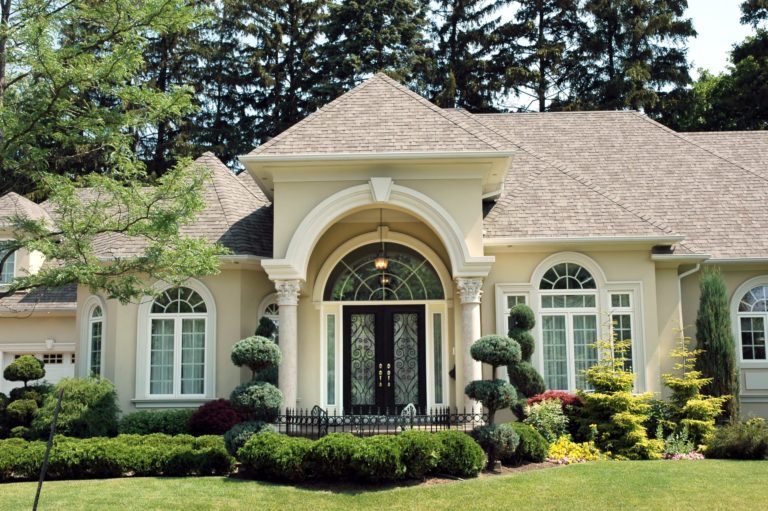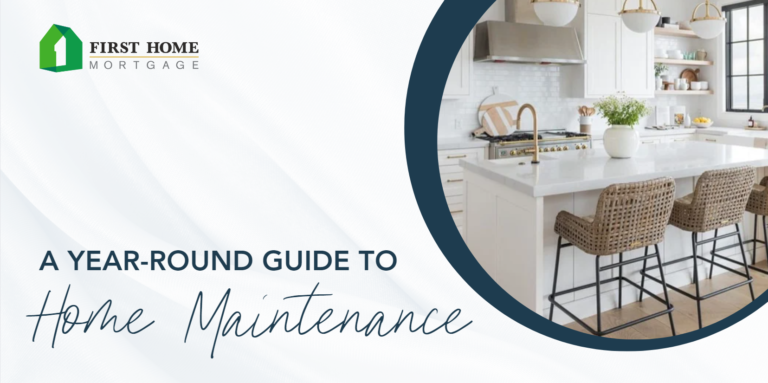
Equity can be defined as the difference between the current market value of a property and the principal balance of all outstanding loans. This is calculated by subtracting your mortgage balance from the market value of your home. Building home equity is important because it can be converted into cash if need be through a home equity loan or a line of credit or cash. In order to increase your home’s equity, you must increase your home’s value, lower your mortgage debt, or both. Here are 5 methods for doing just that.
Make a Big Down Payment
Down payments provide instant equity, and the bigger the down payment, the more equity you have to start with. As an added bonus, if you’re able to put down at least 20%, you can avoid having to pay private mortgage insurance, also known as PMI. However, it’s important to assess your finances and financial goals when determining the ideal amount of money to put down for you and your situation.
Pay More on Your Mortgage
Your mortgage payments are made to cover both principal and interest. Most mortgages are on an amortization schedule where you make payments of equal installments over a specified period of time until your loan is paid off. Generally, a larger portion of your payment goes towards interest in the beginning and more goes towards principal over time. If you can afford to, consider paying more than you have to. In doing so, you decrease your outstanding loan balance faster, thereby increasing your equity. You’ll want to make sure the extra money you pay goes to cover the principal, not interest. There are a few ways to pay extra money on your mortgage, including adding a fixed sum to your payments each month, switching to a biweekly mortgage schedule, scheduling extra payments at regular intervals, and using extra money such as tax refunds and tax gifts.
Refinance to a Shorter-Term Loan
Choosing or refinancing to a shorter loan term can help boost your equity. Typically, with 15-year mortgages, you not only get a lower interest rate but a larger portion of your payments go towards principal rather than interest. This increases the amount of equity you build each month compared to that of a 30-year mortgage. It’s important to note that payments are also higher with a shorter-term loan, so you should consider whether there’s room in your budget for larger payments.
Improve the Property
Remodeling and home improvement projects can boost your equity. According to Remodeling Magazine, the average payback on the most common upgrades is $0.64 for each dollar spent or a 64% return on investment. Smaller projects, such as garage door replacements, do a particularly good job of increasing your equity, especially when you pay with cash rather than through a loan. Unless you’re remodeling with the intent of selling, it’s important to think about how much the improvement will enhance your living experience within the home. You should consult with a real estate agent or another home professional to determine which renovations will net you the highest return.
Wait for Your Home’s Value to Rise
If you’re not in a rush to build equity, one thing you can do is simply be patient and wait. The housing market fluctuates and therefore so does your home’s value. Local market conditions will naturally impact the value of your home; when home prices increase and demand goes up in your area, your home value will rise with it. Conversely, if the market slows, your value may go down and you may lose some equity with it. These market changes are largely out of your control, but they’re worth keeping in mind. If you’re curious, you can consult an appraiser or use an online estimating tool to get an idea of your home’s current value at any given time.
If you are considering purchasing or refinancing, please contact one of our experienced loan officers today to get you started!
Source: https://www.bankrate.com/home-equity/how-to-build-equity-in-your-home/
https://www.nerdwallet.com/blog/mortgages/6-ways-to-build-your-home-equity/


